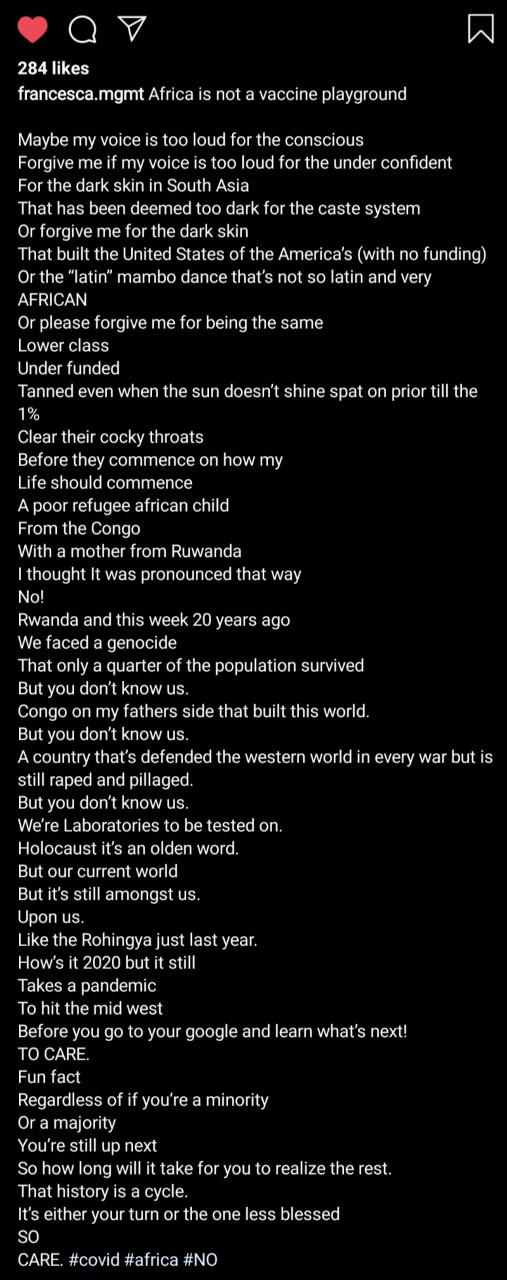What Freedom?
So this semester I was lucky enough to be educated on the actual state of the world through three very interesting courses I took: Agrarian Change, Literature of Conflict and Decolonization of Africa. The combination of these three courses had a lethal impact on my worldview, and I do not think I could ever go back to wanting to be a part of the soulless capitalist system, working in an MNC, or wanting the 'finest' things in life. Even the thought of Europe calling itself developed and educated irks me now.
Somehow (I know how, but its a long story so just indulge me) there is this deep-seeded hatred inside me for the white race now, and usually I let the whispers of class discussions stay there, but not this time around. I guess it has a lot to do with history not being just history. While there may not be a direct imperial rule throughout the world, the forms of domination have just changed shape. Ella Baker's speech got me thinking about what 'freedom' really means, especially because it encompassed the notion that the struggle for freedom isn't over till everybody achieves it.
Even the very basic level, which starts from having fundamental rights, a basic tenet of which is equality: all human beings are equal and none have more rights to life than others, was something that was legally achieved recently.
A second level, after basic prerequisites of civic life have been met, there is financial freedom, a big part of Ella Baker's cause. In her terms then, it isn't financial freedom till everybody is financially free.
The third and fourth kinds of freedom come from an understanding of my own experiences and may not apply broadly.
One is being liberated from the hold that society has on you, and being able to see outside the norm when it feels right. Meaning that an individual is able to see the toxic nature of society which projects its insecurities onto individuals that do not conform to the norm, something more present in our collectivist culture.
A final level, and the most crucial one (I believe), has to do with the internal cage that occupies all of us. That world that we do not share with anyone else, the one that haunts our very existence without us even knowing it. This is also that very same cage that the white man put the Negro in through constant domination. Many people throughout their life are unable to step outside of this cage. This kind of freedom means freedom from our fears and anxieties, from the habitual thought patterns that we are unable to see but which restrict our development. Very few of us are fortunate enough to transcend these internal restrictions that the combined effects of nature, circumstance, and habit (how we learn to cope with uncomfortable scenarios) have placed on us.
But to be able to worry about growth and to be able to think about freedom in such a way is really a privilege, when still in this world most people cannot afford to have two meals a day, or educate their children, when imperial domination still occupies much of Africa, Uyghur Muslims are oppressed because of their religion, and not too far from home, Kashmiris are subjugated to communal violence everyday. While the whole world, including us, is too indulged in mindless distractions to care. What then does freedom mean if it isn't a freedom for all? Why them, and why not us?
Being in this frame of mind, with the coronavirus aiding in stimulating such thoughts, I encountered something really interesting on my instagram feed.
This African-American girl followed me on instagram out of the blue very recently. It turns out that she is from the Congo. (Surprising are the odds because Aime Cesaire's account of Patrice Lumumba was one of the highlights of this course for me and what I learnt about the Congo I have quoted multiple times). But I didn't realize until I read a poem she posted. Being relevant to the current discussion at hand, I thought I'd share it.

Comments